News Flash, Jan. 19: Algernon Pharmaceuticals Inc. announced Wednesday that it has filed a combined clinical trial and ethics approval application in the United Kingdom for Phase 1 of its study of the psychedelic compound N,N-dimethyltryptamine (DMT) that may help repair the brain after a stroke.
The company received positive feedback from the UK’s Medicines and Healthcare Products Regulatory Agency last November.
The primary focus of the Phase 1 study is to investigate prolonged intravenous infusion of DMT, Algernon said. That data will help the company plan later phases more effectively.
Click here for more information.
Biotech is hard. It is full of failure and the frustrations of waiting, so it takes a lot for me to get excited about this sector.
But I am beyond excited about one company that has found a conceptual loophole that puts its operations in a constant fast-forward or leapfrog mode, placing them heads above any other drug developers.
That company is Algernon Pharmaceuticals Inc. (AGN:CSE; AGNPF:OTCQB; AGW:FSE), and it remains one of only two pharmaceutical companies in my portfolio.
Why PennyQueen Is Picking Algernon
Algernon has a brilliant concept. It has found drugs that have been approved, but through clinical trials in places other than the U.S. and Europe. Drug repurposing is common in the industry; there are a lot of drugs that are approved for one thing, and are also effective for another. A good example is Gabapentin, which was developed and approved to treat seizures.
It is used off-label (not approved) to treat bipolar disorder, diabetic nerve pain, migraines, and several other conditions. It has now been trialed and approved to treat pain from shingles, too.
Be sure to sign up to receive PennyQueen's next stock picks exclusively available for Streetwise Reports' readers. Sign Up Now!
PennyQueen is an investor who focuses mostly on clean tech and does her own independent analysis. She has created a social media community of over 10,000 like-minded investors with whom she has shared her progress of taking a $329k nest egg and building it to over $6 million within a year.
A major benefit of running a trial on a drug that is already approved is that you can often skip some steps. Is it toxic? No, that was already proven by the prior study. Move past Go, skip paying millions of dollars, and save three to five years on the drug development timeline.
Then, several years later, there is a generic drug, as is part and parcel of the pharma industry. So, if I spend millions of dollars to get my wonder drug approved for disease B, as soon as it is approved, doctors will just prescribe the patients the generic.
This is where Algernon’s brilliance comes in two-fold. It has identified several approved international compounds that have 1) alternative applications, and 2) no generic counterparts in the U.S. or Europe. This drastically de-risks a huge part of the early-stage clinical trials (where there is a huge failure rate).
The process of clinical trials is not cut-and-dried, and there are many ways for a drug to fail.
Not that my goal here is to be a Negative Nelly on the whole industry, but rather to highlight the risks so that you will understand why, out of all the pharma companies out there, I pick Algernon.
For the investor, Algernon’s setup has a few implications: The process for its drugs is going to be faster and less expensive, and — perhaps more importantly — the company is not a one-trick pony. Of its several potential medications, I am only interested in the two impressive candidates that have already passed the crucial pre-clinical stage: Ifenprodil and DMT.
Can Ifenprodil Effectively Treat IPF and Chronic Cough?
Ifenprodil was originally developed by French firm Sanofi S.A. in the 1970s to treat peripheral vascular disease and was later used in Japan as a treatment for vertigo. Can it be applied to treat idiopathic pulmonary fibrosis, or IPF, too?
IPF is a rare, incurable disease in which the lungs become scarred, causing difficulty in breathing. It is a fatal condition with a survival rate of around three years from diagnosis.
Treatments for IPF qualify as orphan drugs, which are drugs meant to treat extremely rare illnesses; without government assistance, they would not be profitable for pharma companies to produce.
Such government assistance includes tax credits for qualified clinical trials. Some drugs may also be fast-tracked and can have special trial designs without placebo arms. Furthermore, orphan drugs receive seven years of market exclusivity after approval, which means no generics cutting into profits.
Since they are priorities for the U.S. Food and Drug Administration (FDA), orphan drugs play an outsized role in the pharmaceutical industry. For reference, 53 new drugs were approved in 2020, and 31 of them (or 58%) were for orphan drugs.
While the U.S. provides tax credits for orphan drugs, Australia goes one step further and provides companies a refundable credit of 40% for any drug research conducted in the country. Since Algernon's IPF and chronic cough phase 2 studies are being conducted in Australia (and New Zealand), Algernon received a $2 million refund from Australia for its trial expenses.
A series of studies in the UK showed a promising 110% reduced cough count when compared to Merck’s IPF drug.
Positive phase 2 data is the single-most significant catalyst for a shareholder, creating the greatest change in stock price.
Algernon is expecting to have its phase 2 data by Q2/22.
Upcoming Phase 1 Studies of Ifenprodil: Algernon also has Ifenprodil in clinical studies for pancreatic cancer and small cell lung cancer. Both advance to phase 1 studies in Q3/22.
There may be even more applications for Ifenprodil if it proves effective.
Can DMT Help Restore Brain Activity After Stroke?
N,n-dimethyltryptamine, known colloquially as DMT, is the active ingredient found in the hallucinogenic ayahuasca plant. DMT, which was first researched in humans during the 1990s, is widely considered safe at hallucinogenic dosages, but U.S. laws (and restrictions globally) have kept this from widespread study. DMT is believed to kickstart neurogenesis (the activation of neural stem cells) and to promote the formation of new neurons, applications that are currently being tested on stroke patients at sub-hallucinogenic doses.
A 2020 study out of Semmelweis University in Budapest showed that post-stroke rats who were given DMT had smaller dead areas in their brains and less disability after the treatment. An Algernon-sponsored study also showed 40% increase in neuron growth in a preclinical experiment.
Algernon has altered the plant molecule enough that it can file a new structure patent along with patents for dosing and formulation.
The company has already received positive feedback from the UK’s Medicines and Healthcare Products Regulatory Agency (MHRA) and will shortly submit for approval for the Phase 1 study. It also has an ample supply of clinical grade DMT produced by Dalton Pharma in Canada, covering all of its needs for its Phase1 and Phase 2 studies — while many other groups who are attempting to research DMT have struggled with a supply chain that has proven difficult to navigate.
Research into hallucinogens has become popular lately and, while it is a bit of a departure from the general Algernon model, the potential is too good to ignore.
Over 15 million strokes occur annually, and the total addressable market for stroke treatment is expected to exceed $15 billion by 2027, making this a market to watch.
A Market Opportunity for Algernon
I should note that based on an independent animal study showing Ifenprodil was effective in treating the world most lethal flu virus H5N1, Algernon ran a 150-patient, phase 2b/3 COVID-19 trial.
While the study data announced on March 31, 2021, showed a reduction in all-cause mortality of 0% in the treatment group compared to 3.3% in the untreated arm, the data did not achieve statistical significance.
The very next day, Pfizer and BioNTech confirmed the high efficacy and safety of its COVID vaccine.
With a larger phase 3 trial ear-marked at about $30 million, Algernon decided not pursue further research.
The chaos of the 2021 pandemic market combined with this news caused Algernon’s share price to fall. Despite its best efforts to not be considered a COVID-19 only company, it appears that investors flocked to the stock because of it and left when they saw further research was not being planned.
Since then, the company has consolidated shares 100 to 1, to make it ready for entry onto the NASDAQ and has focused on strong fundamentals to ensure it has multiple drugs and research programs in play.
Algernon — armed with an expansive and largely de-risked drug pipeline, with an efficient clinical model — is sitting at a modest market cap of about $11.25 million.
Comparables
From a valuation standpoint, I like to compare biotechs in the most apples-to-apples way possible. I count the number of current studies and where they are in the process. I look for companies trying to treat the same diseases and ones that don’t have the income of approved drugs.
My top comparable is Bellus Health Inc., with two phase 2 clinical trials, one for chronic cough and one for atopic dermatitis, coming in with a market cap of $660 million. Next up is Pliant Therapeutics Inc., with two phase 2 clinical trials (for IPF and primary sclerosing cholangitis) and a market cap of $452 million. Last is DiaMedica Therapeutics, Inc., which has one phase 1 study for stroke and a valuation of $91 million. While the latter has the smallest market capitalization, it also has much less of a pipeline than Algernon.
Assuming $90 million is fair market value for a phase 2 trial, (Bay Bridge Bio assumes $248 million for a phase 2), then Algernon is sitting at about 1/10th its fair market value.
Since the DMT phase 1 study is unlikely to produce any safety issues (the drug has been studied numerous times without any issues arising), the phase 2 acute stroke and rehabilitation studies should begin before the end of 2022. This would put Algernon at two phase 2 trials; the same metric would out the company's value at about $180 million, a far cry from where it is now.
|
Company |
Preclinical |
Phase 1 |
Phase 2 |
Market Cap |
|
|
|
Algernon |
|
3 |
1 |
$11.25M |
IPF & stroke |
|
|
Bellus Health |
|
|
2 |
$660.90M |
Chronic cough & atopic dermatitis |
|
|
Pliant Therapuetics |
2 |
1 |
2 |
$452.65M |
IPF & primary sclerosing cholangitis |
|
|
Diamedica |
|
|
1 |
$91.48M |
stroke |
|
In summary, Algernon has multiple meaningful points of inflection coming in 2022. Biotech is always risky, but Algernon has found ways to make the process faster and remove a significant part of the overall risk.
Combine this with multiple other drug candidates in their pipeline, total addressable markets in the billions, and you have the potential for a winner of staggering proportions.
If you have not already, be sure to sign up to receive PennyQueen's next stock picks exclusively available for Streetwise Reports' readers. Sign Up Now!
Read what other experts are saying about:
| Want to be the first to know about interesting Biotechnology / Pharmaceuticals investment ideas? Sign up to receive the FREE Streetwise Reports' newsletter. | Subscribe |
PennyQueen Disclosure: I own shares of Algernon Pharmaceutical, I have not and will not be compensated for this report in any way. I write reports on my favorite picks; this is meant to be educational and not investment advice as I am not an investment advisor, just a mom on a mission to make the world better and make money along the way.
Streetwise Reports Disclosures
1) The PennyQueen's disclosures are listed above.
2) The following companies mentioned in this article are billboard sponsors of Streetwise Reports: Algernon Pharmaceuticals Inc. Click here for important disclosures about sponsor fees.
3) Statements and opinions expressed are the opinions of the author and not of Streetwise Reports or its officers. The author is wholly responsible for the validity of the statements. The author was not paid by Streetwise Reports for this article. Streetwise Reports was not paid by the author to publish or syndicate this article. Streetwise Reports requires contributing authors to disclose any shareholdings in, or economic relationships with, companies that they write about. Streetwise Reports relies upon the authors to accurately provide this information and Streetwise Reports has no means of verifying its accuracy.
4) This article does not constitute investment advice. Each reader is encouraged to consult with his or her individual financial professional and any action a reader takes as a result of information presented here is his or her own responsibility. By opening this page, each reader accepts and agrees to Streetwise Reports' terms of use and full legal disclaimer. This article is not a solicitation for investment. Streetwise Reports does not render general or specific investment advice and the information on Streetwise Reports should not be considered a recommendation to buy or sell any security. Streetwise Reports does not endorse or recommend the business, products, services or securities of any company mentioned on Streetwise Reports.
5) From time to time, Streetwise Reports LLC and its directors, officers, employees or members of their families, as well as persons interviewed for articles and interviews on the site, may have a long or short position in securities mentioned. Directors, officers, employees or members of their immediate families are prohibited from making purchases and/or sales of those securities in the open market or otherwise from the time of the decision to publish an article until three business days after the publication of the article. The foregoing prohibition does not apply to articles that in substance only restate previously published company releases. As of the date of this article, officers and/or employees of Streetwise Reports LLC (including members of their household) own securities of Algernon Pharmaceuticals Inc., a company mentioned in this article.
6) This article does not constitute medical advice. Officers, employees and contributors to Streetwise Reports are not licensed medical professionals. Readers should always contact their healthcare professionals for medical advice.













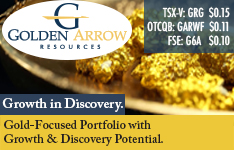



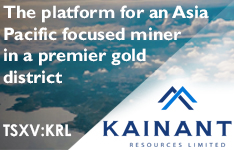
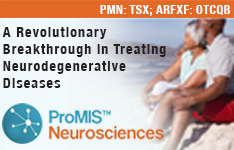

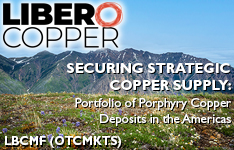




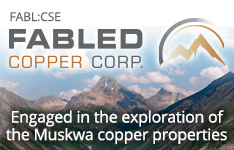

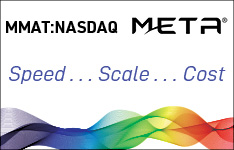


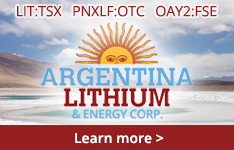


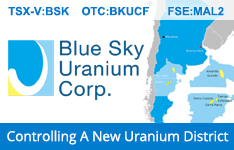














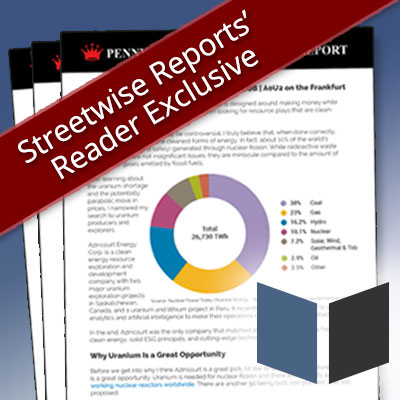 Sign up to receive PennyQueen's next stock pick
Sign up to receive PennyQueen's next stock pick
